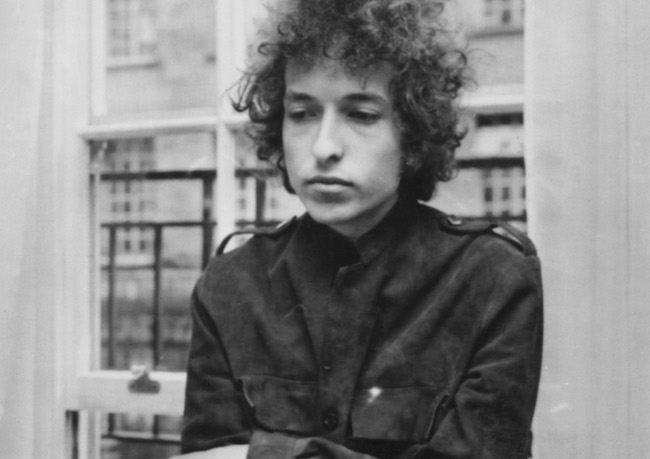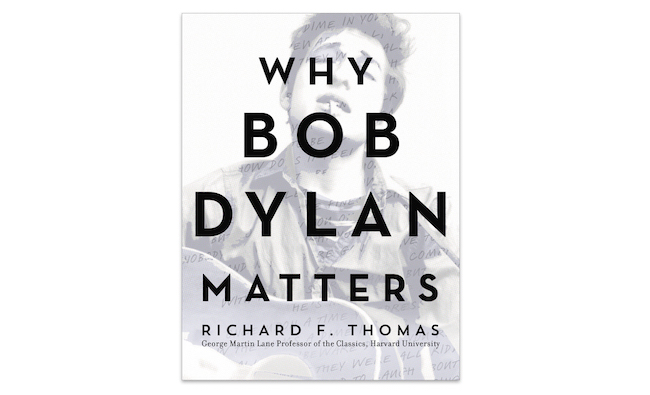
Getty Image
In 2016, singer-songwriter and activist Bob Dylan became the first musician to be awarded the Nobel Prize For Literature. The 76-year-old lyrical genius reacted unusually for a recipient of such a high honor but did so in true Dylan fashion. He ignored the Nobel Prize committee’s attempts to get in touch with him.
After a few weeks of pleading and continuously rebuffing the award, Dylan accepted the honor but on his own terms. Dylan attended a private ceremony in Stockholm and humbly received his gold medal and diploma.
The debate continues as to whether Dylan delivers a Nobel Prize for his lyrics and musical catalog spanning more than five decades. Few can argue, however, that the songwriter has been one of the most influential artists in music and culture of all time. One man, in particular, believes Dylan’s work shouldn’t just be included in the Rock and Roll Hall of Fame but in the Western literary canon alongside names like Shakespeare, Walt Whitman, and Charles Dickens.
“Bob Dylan’s songs,” explains recognized “Dylanologist” Richard F. Thomas, “capture at the highest artistic, poetic, and aesthetic level what it means to be a human being.”
Thomas has preached about the brilliance of Bob in his incredibly popular freshman seminar dubbed “Dylan 101” at Harvard University. He’s also the author of the new book Why Bob Dylan Matters. In the book, Thomas reflects on the question, “What makes a classic?”, and offers sound arguments for Dylan’s modern relevance. He breaks down and decodes Dylan’s lyrics for readers and sheds light on some of the most complex prose in Dylan’s canon.
What can the average guy learn from Bob Dylan, the musician? What can he learn from Bob Dylan, the man?
Richard F. Thomas: The average guy can learn from Dylan, the musician what musical genius looks like. Particularly by following songs in performance, as is now possible to do from official bootleg releases, you can see how deeply informed he has become with folk, blues, gospel traditions, and as his last three releases show, with the old American standards. Anyone interested in these traditions can learn how Dylan often starts out from a familiar place, then through the mingling of experience, observation and his own brilliant imagination—the three songwriting qualities he speaks of in his memoir—has again and again over 55 years created and performed some of the greatest songs of all time.
Dylan, the man, only lets us see so much, but we can learn from what we do see, particularly now his archive at the University of Tulsa is becoming available, with song drafts, photos, and thousands of hours of recordings. The musicians who play with him from time to time give a glimpse of Dylan’s work habits. Dylan works hard at perfecting his art, in writing, recording, and performing his songs. Dylan can teach us that nothing comes without such hard work and that when hard work is combined with genius, the result can be magical.

Tell us a little more about the class at Harvard. How long have you been teaching it? Who’s the typical student that takes the class? Is it focused more on his musicianship, his writing or his activism or a combination?
I have taught “Bob Dylan” as a freshman seminar every four years, starting in 2004 and including a class on October 13, 2016, the day the Swedish Academy announced the award of the Nobel Prize for Literature. We move chronologically through Dylan’s career, so the course ion passing gives 18-year-olds a sense of the cultural and political history of the US from the 1960s on.
Students, with input from me, work on giving presentations, with emphasis on songs that they choose to focus on, selected from the ten to twelve songs, video clips, and readings from Dylan’s Chronicles Volume One that I assign for that day. We focus mostly on his art, his songwriting and performance, since there is abundant material from YouTube and Spotify, and I have a pretty good collection of bootlegs.
Dylan’s songs of activism and protest and generally the context in which he is writing, all come in, particularly early on, but I especially encourage thinking about the songs, and not getting too distracted by biographical approaches.
Which popular musician(s) or writers are comparable to Dylan?
Leonard Cohen came close, but he’s no longer with us. I’ve also been listening to him from my teenage years, since his first great, perfect album that came out fifty years ago. Dylan put it well when he told Cohen “As far as I’m concerned, Leonard, you’re Number 1. I’m Number Zero.”
My tastes and knowledge are not so much in contemporary musicians and songwriters, but across the years I have admired and followed, among many others Eric Clapton, Joni Mitchell, Tom Rush, Emmylou Harris, Van Morrison, Nick Drake, Gram Parsons, Neil Young, Bruce Springsteen. Then there are various groups of course.
If a person is new to Dylan’s work, where should he start?
If a person is new to Dylan’s work and wants seriously to get a sense of the singer’s evolution, the best place to start could be the greatest hits albums, starting with Bob Dylan’s Greatest Hits (1967), Greatest Hits Volume II (1971), and Greatest Hits Volume 3 (1994). Though there is some overlap the three-album Biograph (1983) adds outtakes and also provides an overview.
For the material put out between 1989 and 2006 our new Dylan explorer could start with The Bootleg Series Volume 8: Tell Tale Signs (2008), then move on to the great latest original album Tempest (2012).
From any of these compilations, the new reader could go to the studio album of his choice. Since for Dylan performance is the ultimate goal, an invaluable resource is to be found in The Bootleg Series, including the most recent, Vol. 13, for the “Christian period” 1979–1981, Trouble No More, in the full 8CD/1DVD deluxe edition or the 2CD selection.
The book is titled “Why Bob Dylan Matters”? If you only had one sentence to answer that question, how would you answer it?
Bob Dylan’s songs, especially as performed by Bob Dylan, capture at the highest artistic, poetic, and aesthetic level what it means to be a human being.